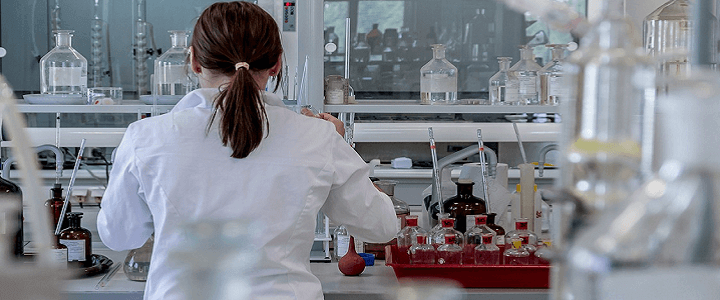Jelly beans were in the news recently, when candy maker Jelly Belly debuted beans laced with the hemp-based cannabis extract CBD and sold them out within a week. Jelly beans are just the latest new use of CBD to hit U.S. markets, following CBD-infused beer, milk shakes, and ice cream, to name a few. CBD is clearly going mainstream, a trend no doubt accelerated by the removal last December of hemp from the federal list of prohibited drugs. Clarification is in order, however: While hemp is indeed now legal, much of the CBD you’ll find on the market is still, technically, prohibited goods.
A Food and Drug Administration (FDA) statement, dated December 20, declared accordingly: “We treat products containing cannabis or cannabis-derived compounds as we do any other FDA-regulated products.”
This FDA statement was a direct response to the White House’s approval earlier that day of a farm bill that contained a provision removing hemp from the Controlled Substances Act—i.e., making it no longer prohibited under federal drug laws. Hemp and hemp-related products, such as CBD, had been prohibited since hemp is in the cannabis family and has miniscule amounts of THC, the psychoactive compound in marijuana that makes marijuana users feel high (note: U.S. law defines a plant as hemp if its THC concentration is 0.3% of plant volume or less; anything higher, and it’s a marijuana plant).
CBD is also present in both marijuana and hemp plants, but unlike THC, it causes no chemical highs. Nevertheless, its association with marijuana means that FDA regulators still deem it a “cannabis-derived compound” and restrict it accordingly.
Drugs vs. Supplements
The FDA approved one use of CBD back in summer 2018: Epidiolex, a prescription-only drug for epilepsy that contains CBD. The agency might approve more uses of CBD in the future. Also from the December 20 statement: “There are pathways available for those who seek to lawfully introduce these products into interstate commerce. The FDA will continue to take steps to make the pathways for the lawful marketing of these products more efficient.”
CBD-infused jelly beans, however, are not among these potentially legal products. Nor are any of the other CBD-infused food and beverage items that have rolled out in the last few months.
“It’s illegal to introduce drug ingredients like these into the food supply, or to market them as dietary supplements,” the FDA statement reads.
The last sentence is key: no marketing CBD as “dietary supplements” allowed. A crux of the debate regarding CBD regulation has been whether to consider the substance a supplement or a drug.
In a separate Q&A on the FDA website, the answer is unequivocal: CBD is a drug. “If a substance (such as THC or CBD) is an active ingredient in a drug product that has been approved… then products containing that substance are outside the definition of a dietary supplement,” the Q&A states.
The FDA is referring here to CBD’s use in Epidiolex. The agency’s approval of this CBD-based drug makes CBD a drug by FDA standards—and as such, subject to any and all restrictions that the FDA can place on prescription drugs.
And if CBD is a drug, then it can’t be an over-the-counter supplement, let alone a food additive. It would be akin to an energy drink laced with Adderall going on sale. Would there be a market for it? Absolutely. Would it be legal? Definitely not.
It isn’t only the FDA who’s making this argument, by the way. The Tobacco Tax and Trade Bureau has also come down against CBD in beverages, decreeing that CBD is a “controlled substance” that has no lawful place in food or drinks. In the last two years, it’s prevailed on several breweries to cease and desist production of CBD-infused beer.
CBD and the Military
CBD is likewise still expressly off-limits throughout most of the U.S. military. Operation Supplements Safety (OPSS), a DoD educational initiative, warns service members on its website that the 2018 hemp law “does not affect the status of CBD” and that consuming CBD could “result in a positive drug test.”
The OPSS site additionally lists individual branches’ positions on CBD. Almost all were basically anti-CBD before December, and they still are today. The Air Force, Army, and Coast Guard all explicitly prohibit ingesting hemp-based products. The Navy doesn’t expressly ban hemp products but does forbid anything containing THC—which CBD does, even if it is just a trace amount. Only the Marine Corps has no stated policy on hemp or CBD.
Change is Possible
Drug policies can change—even the FDA’s. Late last month, the agency announced that it will hold more hearings in April on legalizing CBD in food.
Those hearings are now up in the air, however, following FDA Commissioner Scott Gottlieb’s announcement that he is resigning. His successor may or may not take up the issue at all. Still, more CBD policy developments are a likely bet in months or years to come.
In the meantime, CBD that isn’t in an FDA-approved drug like Epidiolex remains technically verboten. In which case, security-clearance holders who strive to stay on the right side of the law had best stick to regular old jelly beans this Easter season.




